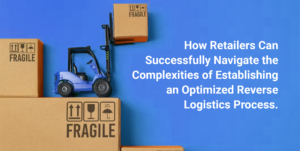You now have your idea finalized. You’ve done your market research and the designs are complete and ready to be put into production. You might have even had a couple of prototypes made.
Now, it’s time to look for a supplier who can reliably produce it at the volume you require and at the quality you desire.
And it’s important to remember that your supplier can make or break the success of your finished product. The wrong one will cost you more time, money, and energy than you should spend. The right one, on the other hand, will help bring your ideas to life and make it easier for you to get your product into the market.
If you’d like to learn how to find the right supplier, this article will guide you on how to choose one and, hopefully, you’ll be able to choose a reliable partner for your business.
Let’s get started.
Types of suppliers
There are basically four types of suppliers to choose from and one is certainly not better than the other. The right supplier for you depends on several factors like your business model, financial abilities, storage capacity, location, etc.. And it’s crucial to determine which supplier meets most, if not all, of your needs.
Wholesaler
Also known as a distributor, they purchase the product directly from the manufacturer and import it to their country if the manufacturer is overseas. Then, they resell the goods to smaller local distributors and retailers for a slightly higher price. Generally, the more stock you buy from them, the lower the price of each item will cost.
Manufacturers
They make the product from scratch and sell it in bulk to wholesalers or retailers. They require minimum order quantities (MOQ) — usually in the hundreds or even thousands of items — for you to be able to avail of wholesale prices. Sometimes they also make small production runs upon the request of the wholesaler (who also gets feedback from retailers based on the consumer’s feedback).
Private label is an arrangement when the manufacturer produces an item exclusively for one retailer who then puts their own label or brand on the product. The manufacturer would also require minimum order quantities and charge you additional fees for making a custom product.
Dropshippers
These companies usually manufacture the product only after the customer buys the product. Then, they package the product according to the retailer’s instructions and ship it to the customer on behalf of them. They also usually charge the retailer higher than wholesale prices because they’re also responsible for shipping and packaging
There are also some suppliers who require you to pre-purchase the product first. Once a unit is sold, that’s the time they will ship it to the customer. Since they have already manufactured the product beforehand, they can ship the order immediately.
Independent cottage industries
These suppliers range from lone craftsmen to small factories who design and produce goods at a much smaller scale. Despite the size of their operation, the price of their goods can vary widely (at least compared to the mass-produced counterpart) depending on several factors like market demand and overhead costs. They also usually sell directly to retailers or the end user through trade shows or agents.

Domestic vs Overseas suppliers: Which one is best for you?
Now that you know what type of supplier you’re looking for, it’s also important to consider their location. Sourcing your product domestically or from overseas has their respective advantages and disadvantages.
And for the purpose of this article, overseas can refer to any country apart from your own. But Asian countries like China, India, and Bangladesh are popular because it’s often cheaper to manufacture goods in these nations.
Domestic suppliers
Advantages
- Virtually no language barrier and communication is easier
- Faster shipping time
- Increased protection for intellectual property of North American businesses
- Ability to meet with the supplier when fixing issues
- Marketing appeal to savvy customers
- Higher labor and manufacturing standards often translate to higher quality products
Disadvantages
- Less choices due to the popularity of Asian manufacturing
- Higher labor and manufacturing costs
Overseas suppliers
Advantages
- Lower manufacturing costs
- More choices of manufacturers to choose from (aggregators like Alibaba have made it easier to navigate the long list of Chinese suppliers)
Disadvantages
- Inferior quality according to the majority of consumers today
- Lower manufacturing and labor standards
- Low level of intellectual property protection
- Cultural differences in how business is conducted
- Communication barriers for non-English speaking countries
- Time zone differences
- Costly to visit the manufacturer and verify their facilities
- Longer shipping time
- Challenges associated with importing and customs clearance
Given the unique pros and cons of both domestic and overseas suppliers, it’s important to remember that your supplier should be able to meet your needs for a reasonable cost. Are you selling perishable goods that need quick delivery times? Is your target market motivated by environmentally and socially conscious decisions? These are the kinds of questions you have to answer when considering a supplier.
How to find suppliers using Google Search
Thankfully, Google can actually be very helpful in locating suppliers. The trick is to use the right keywords so you get the most relevant search results. You can start by typing “supplier”, “distributor”, or “dropshipper” then add the relevant keywords for your product as well as the location.
For example, if you’re looking for a manufacturer of skin lotion in California, your Google search query can be something like “skin lotion manufacturer California” or similar.
But if you’re sourcing phone cases that can be dropshipped from China, your Google search query will look like “dropshipping suppliers phone cases China” or similar.
And when finding suppliers using Google, keep in mind a few things:
- Traditional wholesalers and distributors are known for poorly designed websites and most of them haven’t spruced it up in a long time. However, don’t be fooled and turn your attention into looking for their contact details so you can get in touch with them directly.
- Try a variety of keywords when searching for suppliers online. It’s also safe to say that most legitimate suppliers don’t implement SEO given their outdated homepages. Hence, try using many keywords related to your product as some suppliers may have other names for the same product.
Directories
Aside from searching online through Google, there are also directories that list down a lot of suppliers located all over the world. Some of them focus on a specific kind of good only while others offer products from many different industries. Some also offer additional paid services like vetted supplier lists, management tools, and real-time marketplace updates.
For domestic US suppliers, you can check out:
- ThomasNet (industrial manufacturers and distributors directory)
- Maker’s Row (apparel, furniture, and packaging manufacturers directory)
- MFG (industrial manufacturers directory)
Or you could also check out this list of US dropshipping & wholesale suppliers.
For overseas suppliers, you can visit the following sites:
- SaleHoo (wholesale suppliers directory and online community for retailers and suppliers)
- Oberlo (dropship management service with supplier directory)
- Alibaba (China-based supplier directory)
- “https://www.aliexpress.com/” target=”_blank” rel=”noopener noreferrer”AliExpress (same as Alibaba but also open to consumers)
- Alidropship (dropship management service with supplier directory)
- eSources (UK-based wholesale directory)
- Brandsgateway (Europe’s largest wholesale directory for clothing)
- Wholesale Central (wholesale and dropshipper directory)
- “https://www.toptenwholesale.com/” target=”_blank” rel=”noopener noreferrer”Toptenwholesale (wholesale directory with US-based suppliers too)
- Globalsources (China-based wholesale directory with white label services)
- TheWholeSaler (UK-based wholesale and”https://business.adobe.com/blog/basics/best-dropshipping-suppliers” dropshipper directory)
- Doba (dropship management service with supplier directory)
- Megagoods (wholesale dropshipper for consumer electronics)
- Inventory Source (dropship management service with supplier directory)
- Indiamart (India-based supplier directory)
- Sourcify (e-commerce management service with a curated manufacturer directory)
- Worldwide Brands (wholesale and dropshipper directory)

Why building and maintaining a relationship with your supplier(s) is crucial
Your supplier is fundamental to your business because, frankly, they’re the one making your product. They bring your idea to life and together with you, refine the product until it fully satisfies your customer.
The right supplier can also positively affect other areas of your business, which include:
- Product quality: A product with a good price-to-quality ratio satisfies your customer and encourages them to buy from you again. A supplier of high quality goods also helps you lessen returned items that can be a waste of space in your warehouse.
- Competitiveness: Your supplier’s unique abilities and knowledge brought about by their experience also translate into how competitive you are in the market. They can contribute their standards of quality, knowledge of trends, and technological advancements into developing your product so it stands out among your competition.
- Market relevance: What good is the most amazing product if it arrives late in the market? Suppliers who can deliver inventory on time allow you to capitalize on seasons with high customer demand. You also lower the risk of inventory obsolescence, which only means less profits.
- Financing: Suppliers can also help their clients (i.e. you) financially when they’re strapped for cash or when they’re growing. They can give you better terms on new purchases, postpone your debt, or even invest in your company — all of which improve your monetary position.
With all that they can bring to the table, the relationship you have with them determines how much they’re willing to go the extra mile for you.
And if you’re interested in working with the best suppliers, here are four things you can do to cultivate mutually-beneficial relationships with each of them.
1. Always pay on time.
You can negotiate the terms of your order but once it is placed, please hold your side of the bargain. Suppliers cooperate well with customers who don’t dilly dally and stay true to their word.
But if you can’t pay on time, let them know as soon as possible as well as the reason why you can’t make the payment. Be honest with them as it might just be your token to renegotiating the payment terms towards your favor.
That said, you should always pay on time. When you do so, you’re more likely to get your order on time too and they’re also more open to your requests.
2. Give them reasonable lead times.
Once you’ve placed your order, a lot can happen during the waiting time. And in a perfect world, inventory would always be delivered to your warehouse or shipped to your customer on the exact date you tell your supplier.
But in reality, that isn’t always the case. Your supplier has other clients too and is working hard (just like you) to meet all of their deadlines. They also experience last-minute orders and unexpected problems in their business — both of which can derail your plans.
That’s why it is important to understand their capacity and provide them sufficient lead times for your order. They’re more likely to give you the level of product quality you desire and if unforeseen circumstances occur, they’re also willing to make it back to you.
3. Keep them posted.
It may be all well and good when you’ve paid for your order on time and received it in good condition too. Both parties have benefitted, after all.
But just like any meaningful relationship, you maintain the goodwill by keeping them in the loop. Let them know about how your products are selling and if you think the process could still be improved. Also update them of new points of contact so they can still reach you.
By showing them how much you value your relationship, they in turn also look for new ways to serve you. They might just give you exclusive offers or new leads you’d like to tap into.
4. Treat them like a good friend.
Your suppliers are people too. And while keeping personal matters away from business deals is healthy, treating them like a good friend is worth the time and effort.
Instead of just sending them an email, visit their office and/or manufacturing facilities and be interested in what they’re doing at the factory floor. Include them in your strategy meetings when you’re brainstorming on new ideas. You can also invite them to office events and parties so they also get to know what it’s like in your company.
Personalizing your relationship with them and maximizing face-to-face engagements puts you at the front of their minds. And when you establish real connections with them, they’re more likely to reciprocate the time, money, and energy you’ve put into the relationship.
Author
Jay Manangan is the outreach & partnership manager at Grit PH.

Ready To Upgrade Your Logistic Solution?
Speak to Floship ecommerce logistic consultant about improving your global support chain today





